San Leonardo
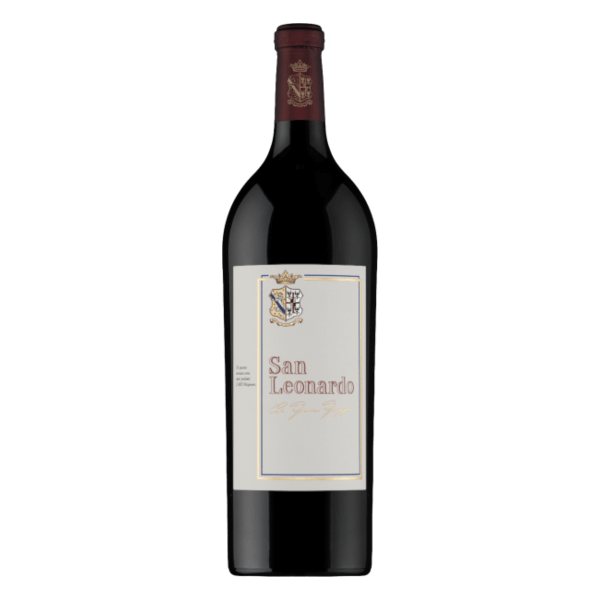
-

-

-
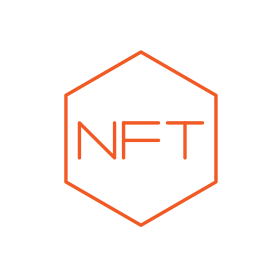
-

-
 NFT StandardERC 721
NFT StandardERC 721 -
 BlockchainPolygon
BlockchainPolygon -
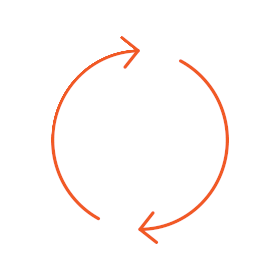 StatusTradable
StatusTradable -
 Storage years0
Storage years0 -
 Storage expirationN/A
Storage expirationN/A
Characteristics
-
 AppellationVigneti delle Dolomiti IGT
AppellationVigneti delle Dolomiti IGT -
 CRU
CRU -
 TypologyWine
TypologyWine -
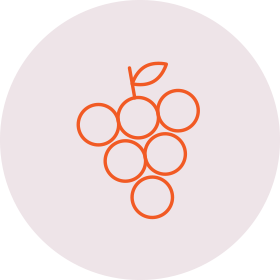 Grape varietyCabernet Sauvignon 60.0%, Merlot 10.0%, Carmenere 30.0%
Grape varietyCabernet Sauvignon 60.0%, Merlot 10.0%, Carmenere 30.0% -
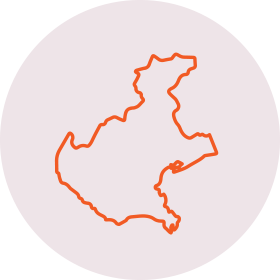 RegionTrentino South Tyrol
RegionTrentino South Tyrol -
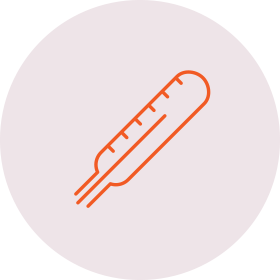 Service temperature16° - 16°
Service temperature16° - 16° -
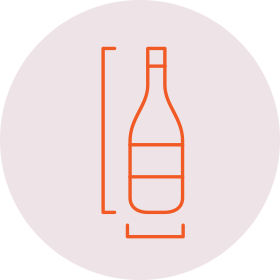 Size1.5 L
Size1.5 L -
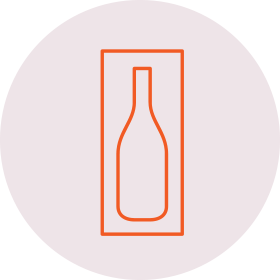 PackagingWooden case
PackagingWooden case
Description
San Leonardo wine represents an excellence in the Italian enological panorama, the result of the innovative vision of Marchese Carlo Guerrieri Gonzaga, and is the estate's flagship wine, a classic Bordeaux blend that combines elegance and extraordinary longevity. In 1982, the Marchese introduced a revolutionary winemaking technique for the time: parceling the estate's land, with each variety vinified and aged separately in barriques. Only before bottling were the different wines blended, giving birth to San Leonardo. The vineyards from which this wine originates are located within the ancient walls of a monastery. The soils vary: light and sandy for Cabernet Sauvignon and Carmenère, while for Merlot they are clayey with excellent drainage. The vines are cultivated with different systems: spur cordon and Guyot with a density of 5,100 plants per hectare, double Trentino pergola with 1,800 plants per hectare, and simple Trentino pergola with 2,500 plants per hectare. The vineyards range in age from 25 to 75 years, located at an altitude between 120 and 300 meters above sea level, with southwest and northwest exposures. The vinification includes spontaneous fermentation and maceration for 12-15 days in small cement tanks, with frequent daily pump-overs and occasional délestage. After racking, the wine undergoes malolactic fermentation in the same tanks and rests for several months. This is followed by aging for 24 months, with 70% of the wine in barriques and 30% in French oak tonneaux of medium toast, first, second, and third passage. The final blend precedes bottling, after which the wine rests for at least another 24 months in the cellars before being marketed.
-
 AppellationVigneti delle Dolomiti IGT
AppellationVigneti delle Dolomiti IGT -
 CRU
CRU -
 TypologyWine
TypologyWine -
 Grape varietyCabernet Sauvignon 60.0%, Merlot 10.0%, Carmenere 30.0%
Grape varietyCabernet Sauvignon 60.0%, Merlot 10.0%, Carmenere 30.0% -
 RegionTrentino South Tyrol
RegionTrentino South Tyrol -
 Service temperature16° - 16°
Service temperature16° - 16° -
 Size1.5 L
Size1.5 L -
 PackagingWooden case
PackagingWooden case
Description
San Leonardo wine represents an excellence in the Italian enological panorama, the result of the innovative vision of Marchese Carlo Guerrieri Gonzaga, and is the estate's flagship wine, a classic Bordeaux blend that combines elegance and extraordinary longevity. In 1982, the Marchese introduced a revolutionary winemaking technique for the time: parceling the estate's land, with each variety vinified and aged separately in barriques. Only before bottling were the different wines blended, giving birth to San Leonardo. The vineyards from which this wine originates are located within the ancient walls of a monastery. The soils vary: light and sandy for Cabernet Sauvignon and Carmenère, while for Merlot they are clayey with excellent drainage. The vines are cultivated with different systems: spur cordon and Guyot with a density of 5,100 plants per hectare, double Trentino pergola with 1,800 plants per hectare, and simple Trentino pergola with 2,500 plants per hectare. The vineyards range in age from 25 to 75 years, located at an altitude between 120 and 300 meters above sea level, with southwest and northwest exposures. The vinification includes spontaneous fermentation and maceration for 12-15 days in small cement tanks, with frequent daily pump-overs and occasional délestage. After racking, the wine undergoes malolactic fermentation in the same tanks and rests for several months. This is followed by aging for 24 months, with 70% of the wine in barriques and 30% in French oak tonneaux of medium toast, first, second, and third passage. The final blend precedes bottling, after which the wine rests for at least another 24 months in the cellars before being marketed.